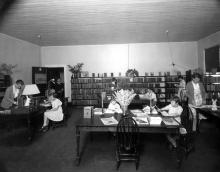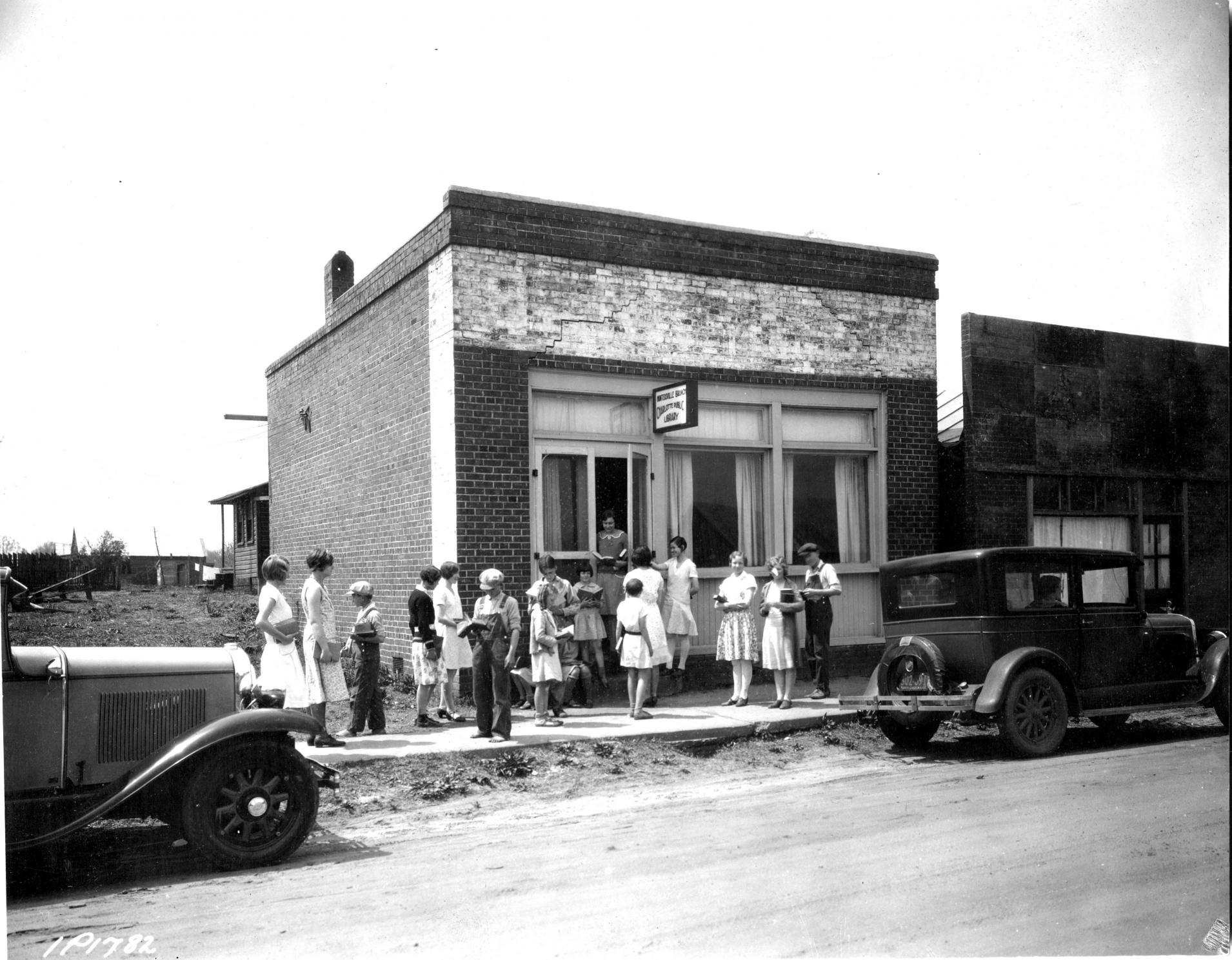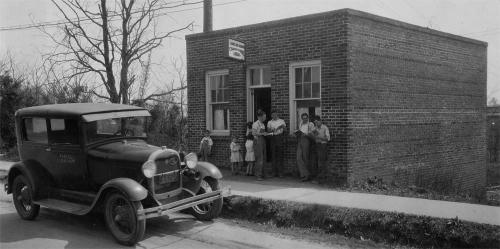You are here
Chapter 6
In 1929 the Charlotte Public Library became involved with the Julius Rosenwald Fund in a library demonstration project. The project was designed to provide incentive for increased local support. The library would receive $80,000 from the fund spread over five years. Each year the Rosenwald support would decrease and local funds would increase to keep the total library income at about $66,000 per year.
With the Rosenwald monies boosting the operating budget by more than a third the first year, the library moved to expand its services to all county residents. By 1931, branches had been established in the five towns in the county: Cornelius, Davidson, Huntersville, Matthews and Pineville. The Brevard Street Library was also now a branch and some thirty-seven stations operated in schools around the county The book collection numbered 106,000 volumes. Twenty-eight staff members were on the payroll.
With the Depression, the library's growth came to a halt. The city and county cut their appropriations. Rosenwald grant monies were withdrawn for lack of matching funds. The operating budget was cut from $66,000 in fiscal year 1930 to $20,000 the following year. Seventeen library employees were laid off, and services were reduced as the library entered the most difficult period in its history.
In addition to its money problems, the library board was dealing with the deteriorating condition of the original Carnegie building and the Brevard Street Branch. In September 1935, the library board sent a letter to the city engineer complaining that no upkeep had been done in over ten years. The city chairman of the Public Building Committee reported that he "had inspected the buildings of the Charlotte Public Library and found them to be in deplorable condition; that the building on Tryon Street probably was in the worst condition of any building in the City; that the wiring is bad and the building is in general disrepair."
Some repairs were carried out on the Carnegie building in 1935 and the Brevard Street Branch Library was refurbished the following year. Works Progress Administration workers helped staff the school libraries and mended and processed books at the main library. Although times were hard the library was offering new service. Baseboard outlets were installed in the main reading room to allow for the use of a talking book machine by the blind, and innovative programs were offered, including one to help mothers choose books for their preschoolers.
Anne Pierce resigned as head librarian in 1937, and James E. Gourley of the New York Public Library took her place. Under his direction, the library again expanded its county service. The North Carolina Library Commission offered a bookmobile for a two-month trial in late 1937. After the trial the service was continued with two library cars. When one was stolen and wrecked, the board purchased a Dodge panel truck. By 1938, deposit stations had been established in thirty-seven homes and stores around the county. Library staff visited them regularly to provide new books.
The Library had barely recovered from the Depression cutbacks when, in 1938, the North Carolina Supreme Court handed down a ruling in the case of Twining v. Wilmington which was to have a profound impact. The court ruled that a public library was not considered a necessary expense, and therefore no tax funds could be appropriated without authorization by popular vote. In Charlotte, all appropriations in excess of the original $2,500 per year authorized in 1901, a total of $28,000 in the library's budget, were now considered to be illegal. The library board petitioned the legislature for a countywide election to authorize additional appropriations.
The election was held June 27, 1939, and, to the dismay of the library board, staff and supporters, the measure failed. The vote was 3,085 - 2,401. Many reasons were offered for the failure: the summer timing when many supporters were out of town; the special registration which meant anyone registering and then failing to vote was counted as a "no"; and insufficient publicity. Few realized that the library would be closed if the measure failed.
Ryckman, Patricia. Public Library of Charlotte & Mecklenburg County: A Century of Service. Charlotte, N.C.: Public Library of Charlotte and Mecklenburg County, 1989.



